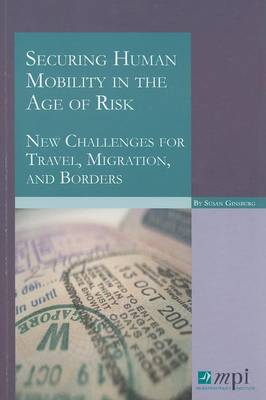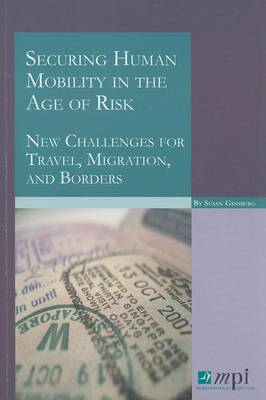
- Afhalen na 1 uur in een winkel met voorraad
- Gratis thuislevering in België vanaf € 30
- Ruim aanbod met 7 miljoen producten
- Afhalen na 1 uur in een winkel met voorraad
- Gratis thuislevering in België vanaf € 30
- Ruim aanbod met 7 miljoen producten
Securing Human Mobility in the Age of Risk
New Challenges for Travel, Migration, and Borders
Susan GinsburgOmschrijving
Protecting human mobility is a complex homeland security challenge. U.S. borders are crossed nearly 500 million times a year, and over a quarter of all Americans have passports. The U.S. government faces a daunting challenge in protecting people on the move from the risks of direct attack, preventing the travel and immigration system from being exploited by terrorists and criminals, and infusing it with resilience against breakdowns. In this book Susan Ginsburg, formerly a senior counsel on the staff of the 9/11 Commission, examines the massive enforcement buildup that has occurred since 9/11, and she finds it out of sync with some of the government's security imperatives. By reducing this enormous protection task to one of border security and immigration enforcement, she argues, policymakers deemphasize many of the critical elements on which mobility security depends.
Adequate protection requires direct action to stop terrorist attacks, human trafficking, multinational gangs, and other criminals and conspirators. It must ensure the integrity of mobility infrastructure, from laws to territorial and airport border points. And it has to prevent life-threatening, uncontrolled, and illicit movement. To advance these goals, Ginsburg proposes a range of policy and programmatic undertakings, from travel bans to new international organizations. This innovative work sets a new agenda for U.S. security policy and practice in the context of travel, immigration, migration, and borders.
Specificaties
Betrokkenen
- Auteur(s):
- Uitgeverij:
Inhoud
- Aantal bladzijden:
- 240
- Taal:
- Engels
Eigenschappen
- Productcode (EAN):
- 9780974281964
- Verschijningsdatum:
- 27/04/2010
- Uitvoering:
- Paperback
- Formaat:
- Trade paperback (VS)
- Afmetingen:
- 152 mm x 229 mm
- Gewicht:
- 680 g

Alleen bij Standaard Boekhandel
Beoordelingen
We publiceren alleen reviews die voldoen aan de voorwaarden voor reviews. Bekijk onze voorwaarden voor reviews.











